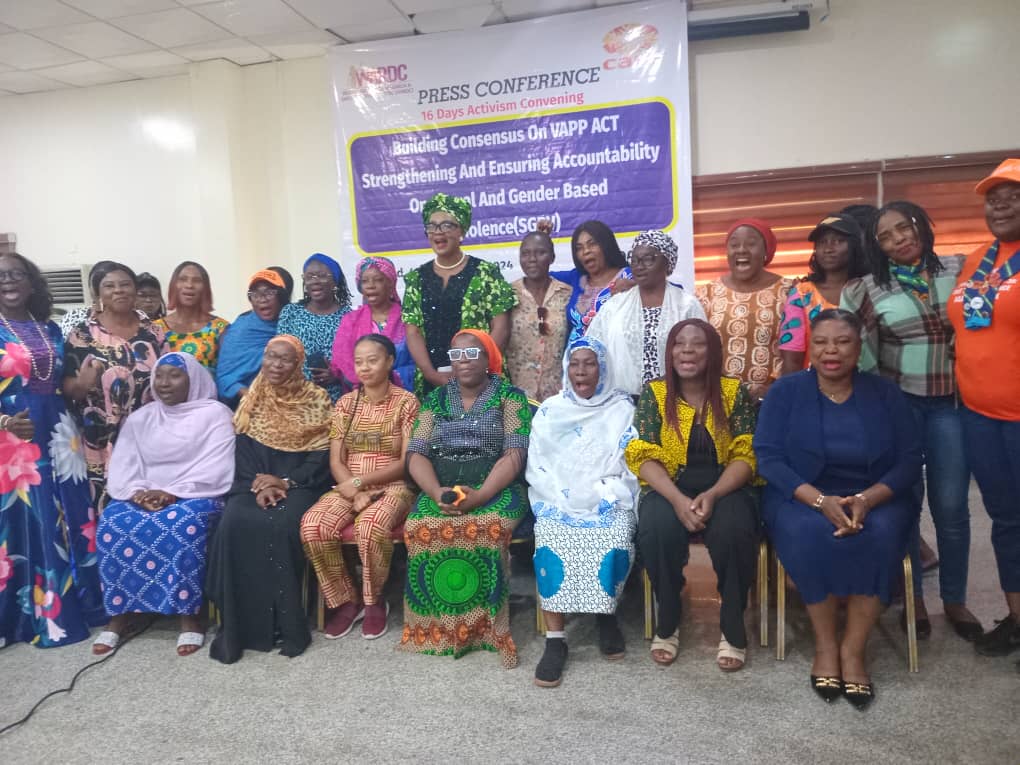The Executive Director of Women Advocates Research and Documentation Centre (WARDC), Abiola Akiyode-Afolabi has called on the Federal Government to increase funding for the implementation of the Violence Against Persons (Prohibition) Act (VAPP Act) while demanding at least 0.5% from the total national tax, for improved awareness-raising campaigns, and stronger enforcement mechanisms to end Sexual and Gender-Based Violence.
This was made known at the press briefing organised by WARDC in collaboration with Care International on strengthening and accountability on the VAAP Act 2015 held on Wednesday in Abuja.
“We call for increased funding for implementation and we demand at least 0.5% from the total national tax, to ensure consistent funding for the prevention of SGBV, and adequate response to GBV issues to address issues of capacity for legal, medical, and psychosocial support services for victims.
“It will demonstrate the government’s commitment to eradicating GBV and supporting victims. We believe that adequate funding and sustained advocacy are crucial in achieving a violence-free society for all and will translate to an improvement in the economic and social development of the nation”
Akiyode-Afolabi stressed the need for an inclusive allocation criterion that prioritizes gender equity in all areas and sectors of the nation.
Emmanuella Azu, WARDC, acting director, also made a demand for a public hearing on the VAPP Repeal Bill by the National Assembly to enable stakeholders to present opinions that will support a more robust VAPP Act.
“We call for continuous engagement with stakeholders, including civil society, law enforcement, and the judiciary, it is crucial to ensure that the VAPP Act 2015 reflects the needs of all relevant parties. Strengthening the VAPP Act 2015 and addressing its implementation challenges through necessary amendments can create a more just and equitable society for all issues.
“We believe that adequate funding and sustained advocacy are crucial in achieving a violence-free society for all and will translate to an improvement in the economic and social development of the nation.
She informed that some of the reasons for the inability to effectively fight violence against women and girls include the culture of silence and concealment, stigmatization, trivialization, threats and intimidation, and inadequate funding of necessary structures and mechanisms for implementing anti-VAWG legislations, among others.
“Cases of violence were usually better reported and taken up only in places where the relevant implementation structures were put in place, and effective (for example, in the states where the First Ladies take a keen interest in and contribute to efforts aimed at eliminating violence against women and girls)”.
The Violence Against Persons (Prohibition) Act (VAPP Act) is a law that guarantees the protection of the rights of citizens from all forms of violence in Nigeria.
The main thrust of the Law is to eliminate violence in private and public life; prohibit all forms of violence against persons, particularly women and girls who are disproportionately affected; provide maximum protection and effective remedies for victims; punishment of offenders and other related matters.















